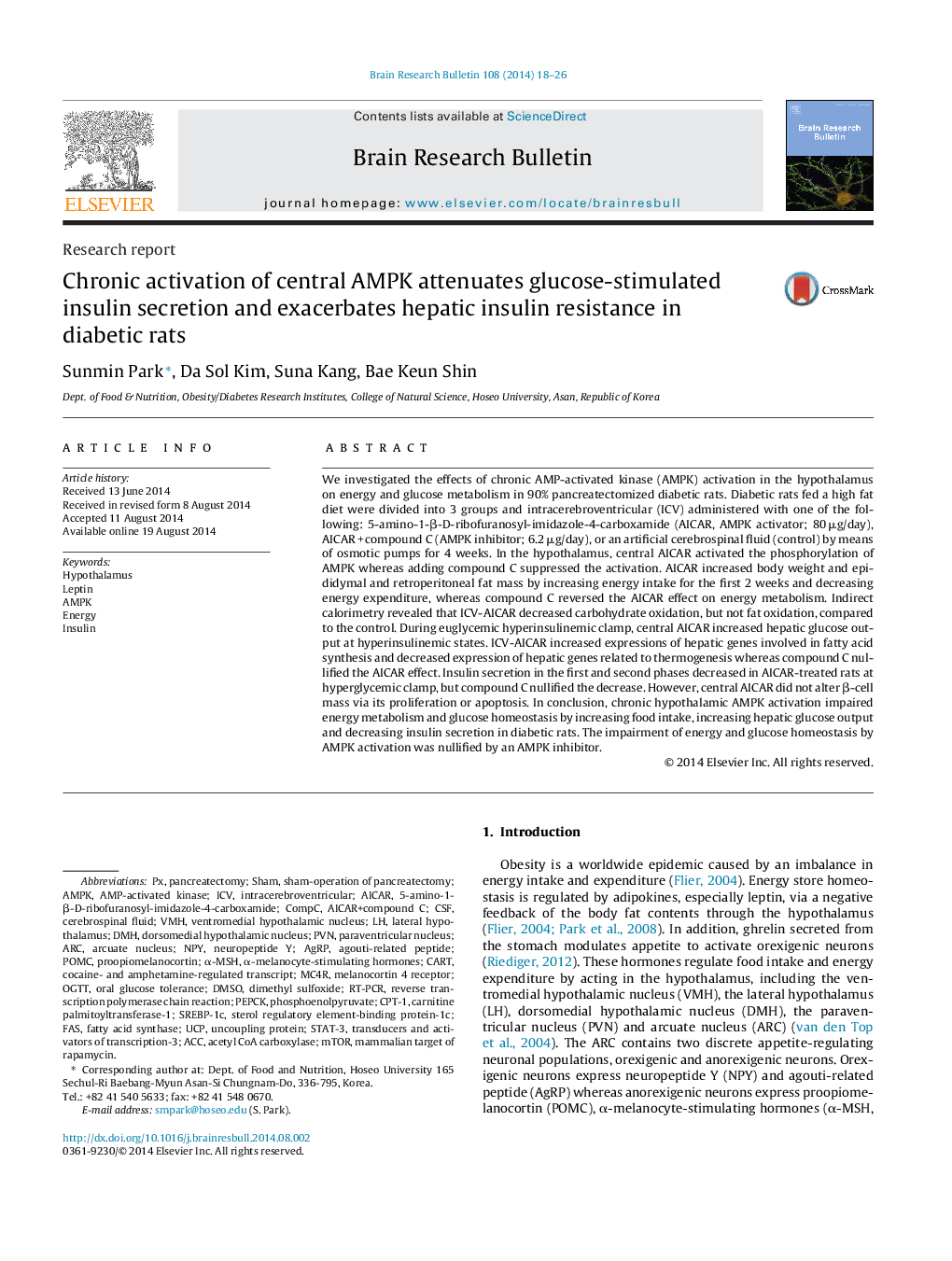| Article ID | Journal | Published Year | Pages | File Type |
|---|---|---|---|---|
| 6261758 | Brain Research Bulletin | 2014 | 9 Pages |
â¢High fructose diets and anti-psychotic drugs are reported to activate hypothalamic AMPK.â¢Central AICAR infusion increased body weight and visceral fat mass in diabetic rats.â¢Central AMPK activation exacerbated impaired glucose-stimulated insulin secretion.â¢Hypothalamic activation AMPK elevated hepatic insulin resistance in diabetic rats.
We investigated the effects of chronic AMP-activated kinase (AMPK) activation in the hypothalamus on energy and glucose metabolism in 90% pancreatectomized diabetic rats. Diabetic rats fed a high fat diet were divided into 3 groups and intracerebroventricular (ICV) administered with one of the following: 5-amino-1-β-D-ribofuranosyl-imidazole-4-carboxamide (AICAR, AMPK activator; 80 μg/day), AICAR + compound C (AMPK inhibitor; 6.2 μg/day), or an artificial cerebrospinal fluid (control) by means of osmotic pumps for 4 weeks. In the hypothalamus, central AICAR activated the phosphorylation of AMPK whereas adding compound C suppressed the activation. AICAR increased body weight and epididymal and retroperitoneal fat mass by increasing energy intake for the first 2 weeks and decreasing energy expenditure, whereas compound C reversed the AICAR effect on energy metabolism. Indirect calorimetry revealed that ICV-AICAR decreased carbohydrate oxidation, but not fat oxidation, compared to the control. During euglycemic hyperinsulinemic clamp, central AICAR increased hepatic glucose output at hyperinsulinemic states. ICV-AICAR increased expressions of hepatic genes involved in fatty acid synthesis and decreased expression of hepatic genes related to thermogenesis whereas compound C nullified the AICAR effect. Insulin secretion in the first and second phases decreased in AICAR-treated rats at hyperglycemic clamp, but compound C nullified the decrease. However, central AICAR did not alter β-cell mass via its proliferation or apoptosis. In conclusion, chronic hypothalamic AMPK activation impaired energy metabolism and glucose homeostasis by increasing food intake, increasing hepatic glucose output and decreasing insulin secretion in diabetic rats. The impairment of energy and glucose homeostasis by AMPK activation was nullified by an AMPK inhibitor.
